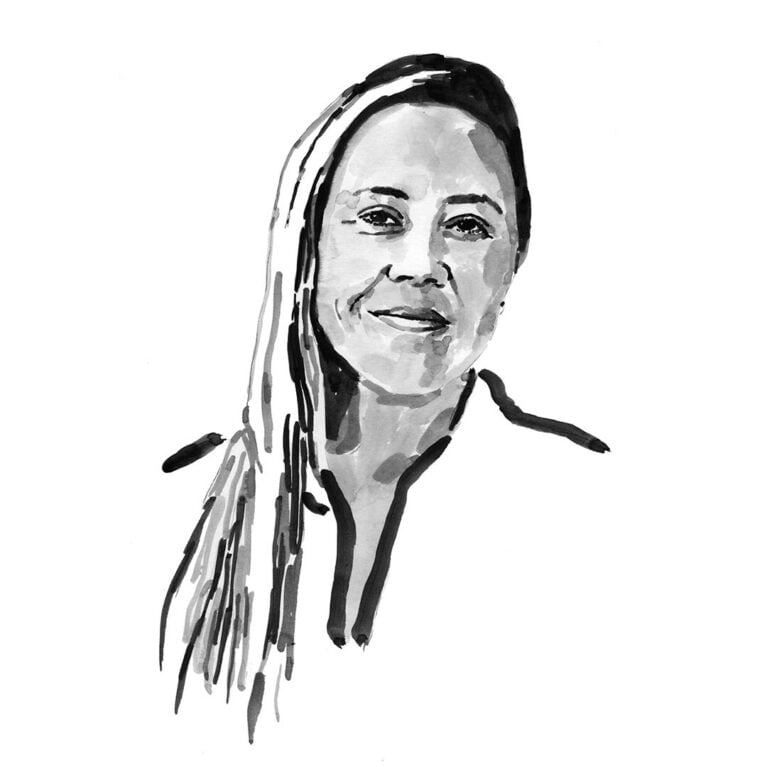Linking local knowledge and local hearts to save the sharks of Holbox Island
Nadia learns about life in the sea, from those who spend their lives around the sea. Collecting Local Ecological Knowledge (LEK) about sharks, sawfishes, manatees and sea turtles, she connects this information with spatial data to understand Mexico’s marine biodiversity. Nadia is focused on Holbox Island off the Yucatan Peninsula in Quintana Roo. The island forms a coastal lagoon surrounded by mangroves (thought to be shark breeding grounds) with its seafloor covered by seagrasses. Holbox is a treasure trove of marine life that Nadia is intent on helping manage in the wake of rapid development.
I founded and am the director of Mar Sustentable Ciencia y Conservación, A.C., a non-profit organisation that works to conserve marine life in Mexico’s Caribbean waters. I obtained my doctoral degree at Scripps Institution of Oceanography, University of California San Diego, and am currently researching how local communities exploit the near-shore areas of islands. With this information, I am developing a baseline trajectory of the diversity and accessibility of marine fauna, such as sharks, over time. I have been involved in numerous marine conservation research programmes in the Gulf of California and the Mexican...
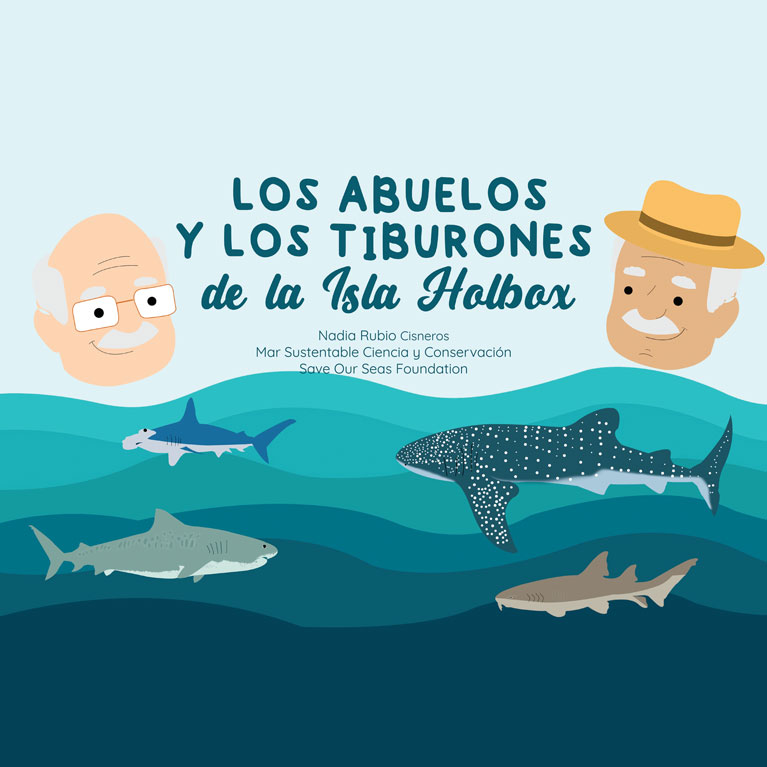
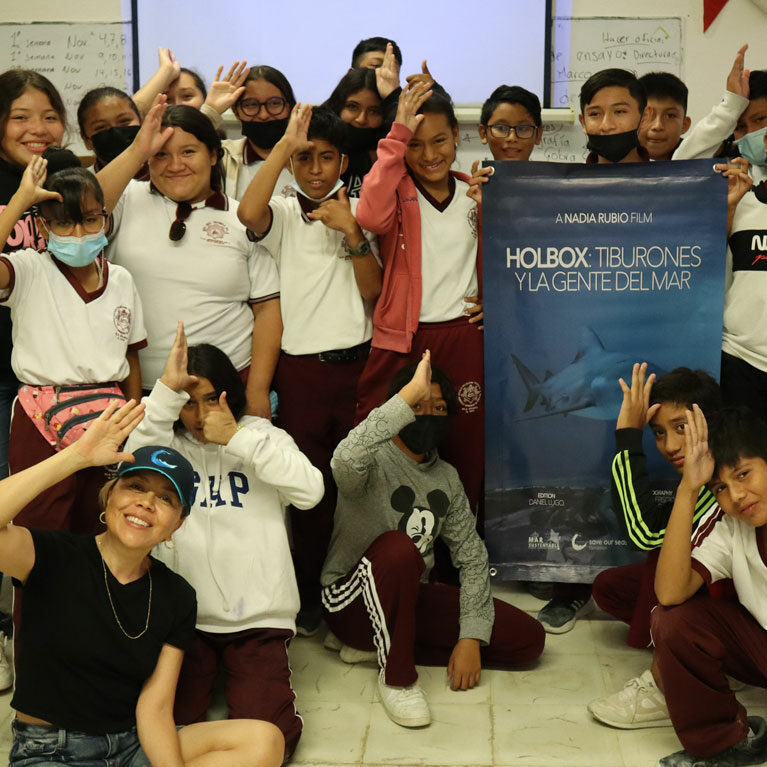
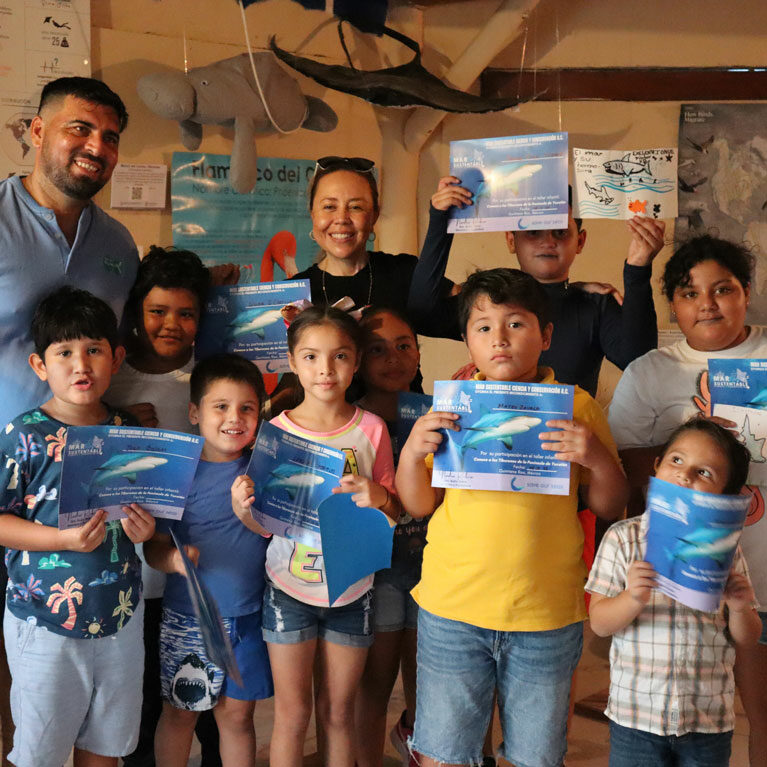
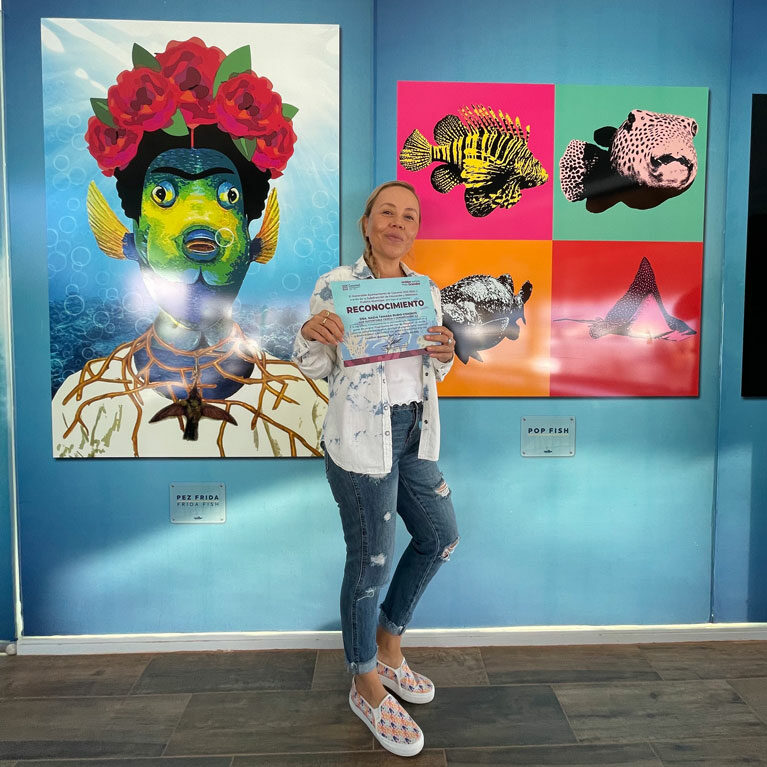
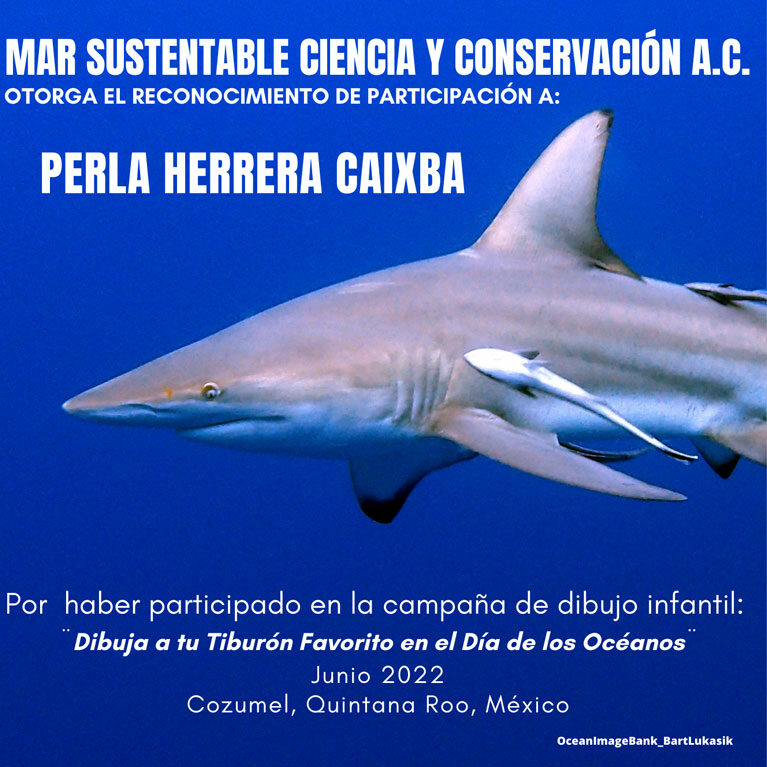
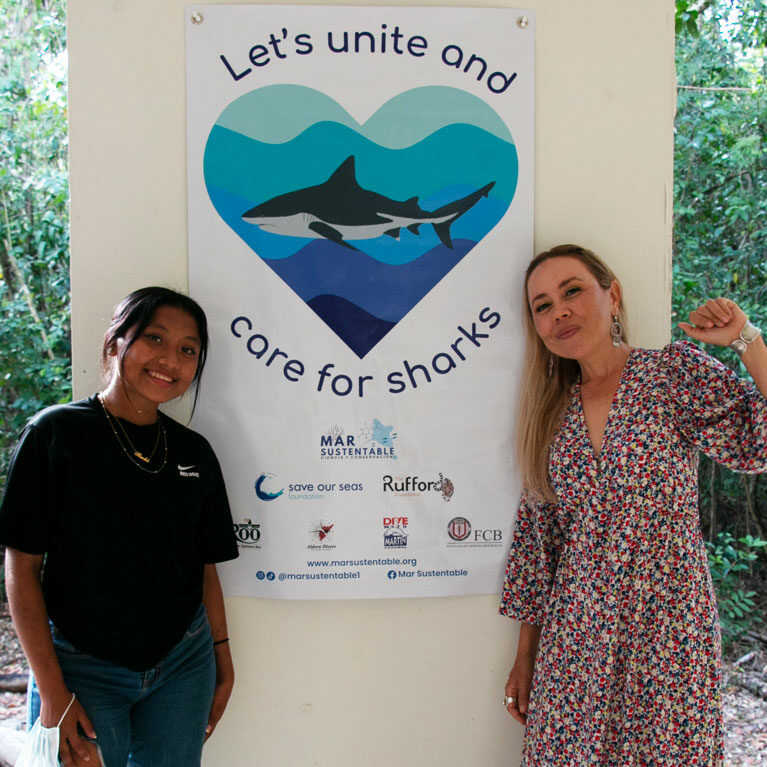
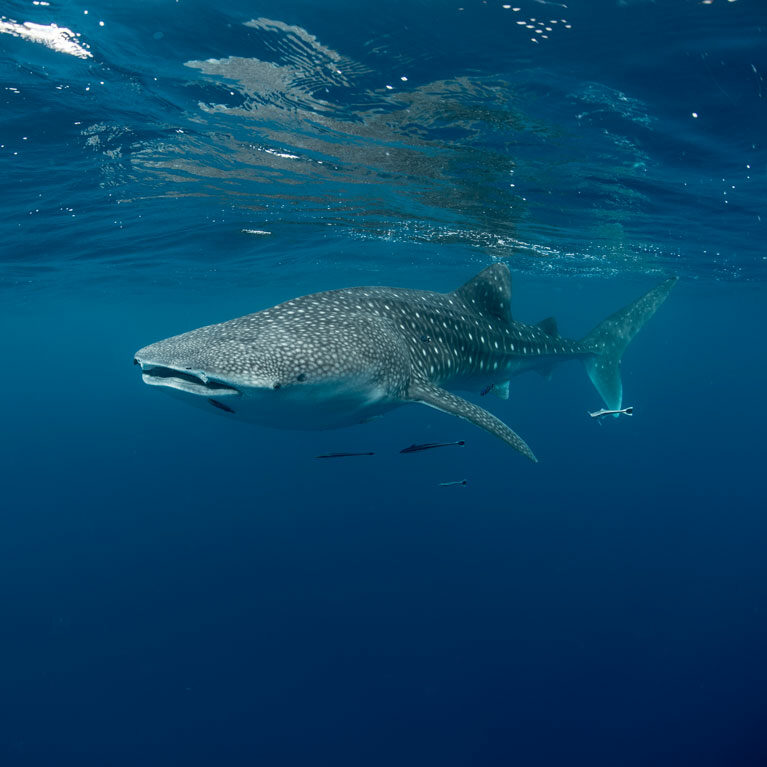
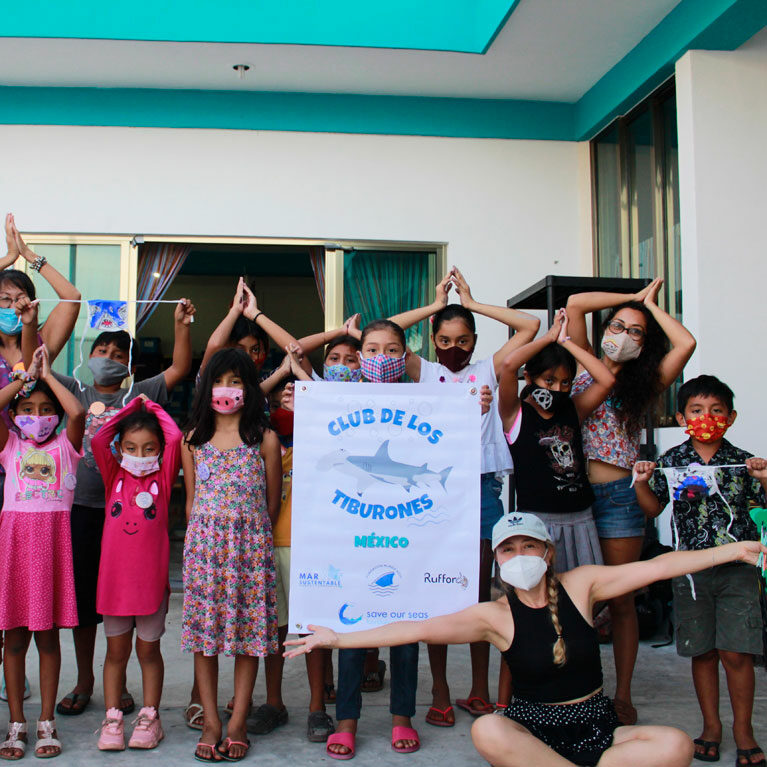
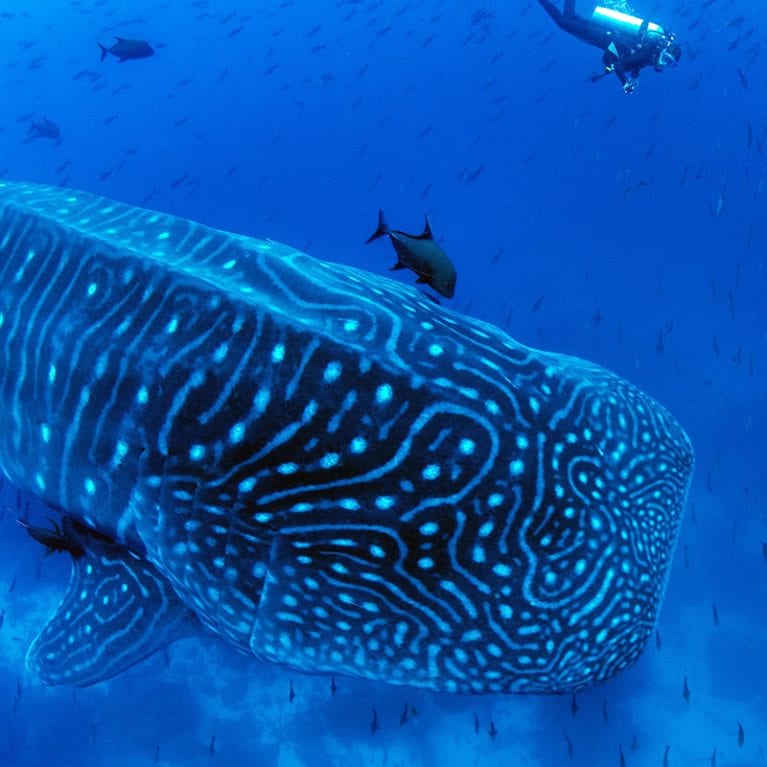
The Sharks of Holbox Island: Fostering the care for local nature through education and outreach.
The aim of this project is to promote community awareness and emphasise the importance of preserving socio-cultural values for the conservation of Holbox’s and Chiquilá’s biodiversity, focusing on sharing local knowledge about sharks and their relevance to coastal habitats. We will also generate scientific data on shark biodiversity in the region by integrating people’s traditional knowledge with historical and archaeological data.
Environmental education efforts need to be widespread on islands such as Holbox, which share a rich socio-cultural heritage associated with nature and face increasing human migration and tourism development that threaten local biodiversity. From pre-Columbian times, sharks were abundant and had cultural value in the Holbox region. Local knowledge about Holbox’s sharks is fading into the island’s history. Environmental education can help locals and visitors understand the value of top predators for healthy and biodiverse oceans.
Tourism development and increasing landscape and coastal exploitation are a dire problem for coastal communities globally. In many regions, such as islands in Latin America, knowledge about interactions between humans and nature is still scant. This matters, especially in mega-diverse countries like Mexico, which is witnessing increasing tourism and coastal development. An example is Quintana Roo on the Yucatán Peninsula, which has shown growing tourism-based economic development for more than 40 years. For my postdoctoral research, I studied the encroachment of coastal development on Holbox Island in Quintana Roo. Here, together with an interdisciplinary team, I initiated the generation of baseline data on fisheries exploitation and tourists’ perceptions of the environment. Our results in relation to fishers’ traditional knowledge, literature sources and archaeological records were published in <i>Marine Policy</i>. Here we reported that sharks and rays were abundant in the nearshore waters around Holbox. Overfishing until the mid-20th century led to changes in coastal food webs, illegal fishing has become widespread and there are now socio-environmental issues relating to tourism development and large sell-outs of communal land. The latter has disrupted the long-term relationship that islanders had with the sea. We will continue to document changes in the biodiversity of sharks and sawfish over time and will initiate diverse activities with the community and novel environmental education material to locally, regionally and internationally communicate about the sharks of Holbox.
This project focuses on fostering shark conservation in the Holbox region, a site that has transformed into a global tourism hotspot and now faces environmental degradation, social conflict and overfishing, and benefits from very few environmental education programmes. Few people know that sharks populated the waters around Holbox. The island’s tourism development brought losses and changes in socio-cultural values relating to the conservation of local biodiversity. The project’s activities will comprise:
- shark environmental education activities for kids;
- community events to increase awareness of shark conservation;
- the collection of shark biodiversity data using our published methodology of integrating traditional knowledge and archaeological shark data (records span more than 2,000 years) from our collaboration with the Costa Escondida Project;
- the generation of sound environmental education and scientific products for shark conservation. Our team’s connections with locals involved in conservation and the K-12 schools on Chiquilá and Holbox will be crucial for disseminating and sharing our work to promote local knowledge for shark conservation.
Summary of main research results/outcomes
This project disseminated shark conservation and environmental education activities on Holbox region. A location converted into a worldwide tourist attraction that experiences environmental decay, social issues, overfishing, and inadequate environmental education resources. Sharks used to populate Holbox’s coastal
waters, but the information is scant. Holbox’s growing tourism development brought losses to socio-cultural values related to biodiversity conservation. This project innovated in developing environmental education material for shark conservation using Fishers’ Local Ecological Knowledge (LEK) collected via our interdisciplinary research efforts together with published literature. We developed environmental
education activities for local kids. And online kids’ workshops occur in 2021 when COVID-19 was still happening. By collaborating with archaeologists from the Costa Escondida Project, we integrated their archaeological sharks ́ data with our interdisciplinary method to collect shark biodiversity data for this project. We
published a scientific paper on sawfishes and are currently preparing another one on coastal sharks.
The above initial goal that our project had of disseminating Holbox’s natural capital legacy has been achieved beyond my expectations as a project leader. Since the audience very well received science communication material developed in this grant. This happed particularly with the short documentary we created. We planned it as a short video that could empower the community and local people. But it became a source of interest for many people that live close or far from the ocean and have unique backgrounds but share an interest in the sea, the sharks and in the human life on islands.

